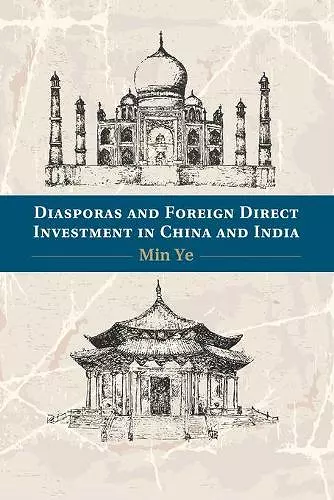Diasporas and Foreign Direct Investment in China and India
Format:Paperback
Publisher:Cambridge University Press
Published:2nd Apr '20
Currently unavailable, and unfortunately no date known when it will be back
This paperback is available in another edition too:
- Hardback£90.00(9781107054196)

A comparative and historical analysis of foreign direct investment liberalization in China and India, explaining how the return of these countries' diasporas affects such liberalization.
This book offers a comparative and historical analysis of foreign direct investment (FDI) liberalization in China and India and explains how the return of these countries' diasporas affects such liberalization. It examines diasporic investment from Western FDIs and finds that diasporas, rather than Western nations, have fueled globalization in the two Asian giants.This book offers a comparative and historical analysis of foreign direct investment (FDI) liberalization in China and India and explains how the return of these countries' diasporas affects such liberalization. It examines diasporic investment from Western FDIs and finds that diasporas, rather than Western nations, have fueled globalization in the two Asian giants. In China, diasporas contributed the lion's share of FDI inflows. In India, returned diasporas were bridges for, and initiators of, Western investment at home. Min Ye illustrates that diasporic entrepreneurs helped to build China into the world's manufacturing powerhouse and that Indian diasporas facilitated their homeland's success in software services development.
'Economic studies of foreign direct investment have largely ignored the social context in which such investment takes place. In this powerful corrective, Min Ye traces the effects of diasporas not only on capital flows but on the wider policy context. She reinterprets the economic opening of the two developing giants - China and India - and their wider growth experience more generally.' Stephan Haggard, Krause Professor, Graduate School of International Relations and Pacific Studies, University of California, San Diego
'Foreign direct investment is often considered an exclusive purview of Western multinationals. Min Ye's book provides a fascinating comparison of the crucial role played by a different network - overseas co-ethnics - in promoting foreign direct investment in China and India. Her conclusion is that while diaspora-sourced FDI has been important in both countries, it has until recently been much less contested in China, shedding a new explanatory light on differences in these countries' respective paths to economic transformation. Ye's book is a novel and compelling contribution to the emergent comparative literature on the political economy of China.' Margaret M. Pearson, University of Maryland, College Park
'Foreign direct investment has been a main driving force behind the rapid development of Asia's two giant economies, China and India. The Western nations, the usual FDI sources in the developing world, were not the FDI providers, however. What has fuelled the globalization of the two economies? In this comparative and historical analysis, Min Ye reveals that it was the FDI patterns of the Chinese and Indian diasporas that have given rise to the differing performance of the two economies. All those who would like to uncover the secrets of these two Asian economies and their linkages with the rest of the world should read it; it is also a valuable guide for the future of the two increasingly important Asian giants.' Zheng Yongnian, National University of Singapore
ISBN: 9781107666108
Dimensions: 230mm x 153mm x 15mm
Weight: 500g
258 pages